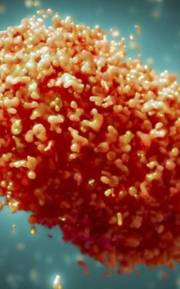
Foxed by monkeypox?
Posted 21 Aug 2022 | Source: https://www.deccanherald.com/
While the smallpox vaccine may not protect you from monkeypox forever, the viral illness is self-limiting and gets cured in around three weeks, writes Dr Swati Rajagopal
Monkeypox is a viral illness first discovered in 1958 when two outbreaks of a pox-like disease occurred in colonies of monkeys in a research facility, so the name ‘monkeypox’ comes from this event. In 1970, the first human case of monkeypox was recorded in the Democratic Republic of the Congo (DRC). It has become endemic in parts of Central and West Africa and most concentrated in the Democratic Republic of the Congo. On 14 May 2022, a cluster of cases of
monkeypox was reported in the United Kingdom, and these cases have no history of travel. Several other countries too have reported cases of monkeypox.
Transmission of monkeypox virus occurs when a person encounters the virus from an animal, human, or materials contaminated with the virus.
The virus enters the body through broken skin (even if not visible), respiratory tract, or mucous membranes (eyes, nose, or mouth). Animal-to-human (zoonotic) transmission may occur through bite or scratch, direct contact or indirect contact with body fluids, or cutaneous or mucosal lesion material of infected animals. Human-to-human transmission primarily through droplet respiratory particles after prolonged face-to-face contact. Other human-to-human transmission methods include direct contact with respiratory secretions, skin lesions of an infected person, or recently contaminated objects.
Signs & symptoms
The incubation period usually lasts from 7 to 14 days but can range from 5 to 21 days. After the incubation period, the illness typically lasts for 2−4 weeks of infection, and it can be divided into two periods:
The invasion period
Usually lasts between 0-5 days.
Characterised by fever, intense headache, lymphadenopathy, back pain, myalgia, and intense asthenia (lack of energy).
Lymphadenopathy is a distinctive feature of monkeypox compared to other diseases that may initially appear similar (chickenpox, measles, smallpox).
The skin eruption period
Usually begins within 1-3 days of the appearance of fever.
Often beginning on the face and then spreading to other parts of the body including, the palms of the hands, soles of the feet, oral mucous membranes, genitalia, and conjunctivae.
The rash evolves through the following stages sequentially from macules (lesions with a flat base) to papules (slightly raised firm lesions), vesicles (lesions filled with clear fluid), pustules (lesions filled with yellowish fluid), and crusts which dry up and fall off.
Can you get monkeypox again?
If you have already had monkeypox, you will not usually get it a second time.
We do not yet know for sure whether this is also the case after vaccination.
You may still develop a skin rash (including blisters) from direct skin contact with someone who has monkeypox, and those blisters are contagious.
When am I contagious, and for how long?
If you are infected, you can be contagious as early as two days before the skin rash or proctitis appears. Initial evidence suggests that the virus may be present in sperm even before someone develops any symptoms.
You will remain contagious until all the scabs from the blisters have fallen off and any proctitis symptoms have resolved fully.
As a precaution, it is recommended to continue using condoms during sex for 12 weeks.
Am I already protected against monkeypox if I was vaccinated with the smallpox vaccine before 1975, in the context of the National Immunisation Programme?
Smallpox vaccines were administered in the Netherlands until 1974. These smallpox vaccines are no longer used because the virus that causes smallpox (the variola virus) has been eradicated worldwide since 1980.
The old smallpox vaccine on its own does not offer sufficient protection against monkeypox.
Treatment is entirely symptomatic as per recommendations from the Government of India.
There is a registered medicine authorised for use to treat monkeypox in patients admitted to hospital with severe symptoms, but it is not yet available in India.
Monkeypox is similar to smallpox but is a milder form caused by the monkeypox virus, which belongs to the same group of viruses known as orthopoxvirus. Its symptoms are similar to smallpox like fever, headache, rash and flu-like, but it is self-limiting and is cured in around three weeks.
The main difference between monkeypox and smallpox is that apart from the flu-like symptoms, monkeypox causes enlargement of lymph nodes or glands, which are there in the body, which helps us differentiate between the two.
(The author is a consultant in infectious disease & travel medicine.)
